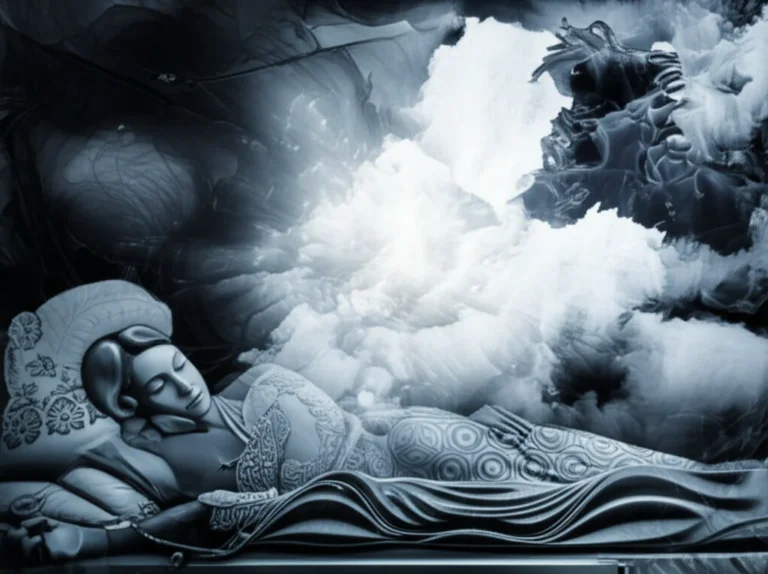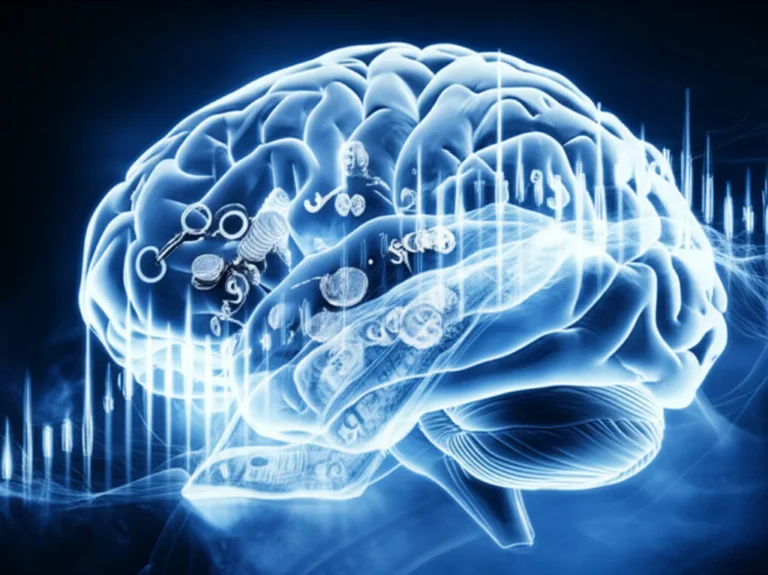Support our educational content for free when you buy through links on our site. Learn more
Is Dream Interpretation True? [2024] ✅

Have you ever woken up from a dream and wondered what it meant? Dreams have fascinated humans for centuries, and many believe that they hold hidden messages and insights into our subconscious minds. But is dream interpretation true? Can we really uncover the meaning behind our dreams? In this article, we will delve into the world of dream interpretation and explore the theories, common dreams, nightmares, tips for analyzing dreams, and more. So, grab your dream journal and let’s dive in!
Table of Contents
- Quick Answer
- Quick Tips and Facts
- Background: The Fascinating History of Dream Interpretation
- Theories of Dream Interpretation: Unlocking the Secrets of the Mind
- Common Dreams and Their Possible Meanings: Decoding the Symbolism
- What Do Nightmares Mean? The Dark Side of Dreaming
- Tips for Analyzing and Interpreting Your Dreams: Unveiling the Hidden Messages
- FAQ: Your Burning Questions About Dream Interpretation
- Conclusion: The Power of Dream Interpretation
- Recommended Links
- Reference Links
Quick Answer
Dream interpretation is a fascinating field that has captivated humans for centuries. While it is not an exact science, many people believe that dreams hold symbolic meanings and can provide insights into our subconscious minds. By analyzing the themes, symbols, and emotions in our dreams, we can gain a deeper understanding of ourselves and our innermost desires. While dream interpretation may not have concrete evidence to support its claims, it can be a valuable tool for self-reflection and personal growth. So, if you’re curious about the meaning behind your dreams, read on to uncover the secrets of dream interpretation!
👉 CHECK PRICE on: Dream Interpretation Books on Amazon | Dream Interpretation Books on Walmart | Dream Interpretation Books on Etsy
Quick Tips and Facts
Before we dive deeper into the world of dream interpretation, here are some quick tips and facts to get you started:
✅ Keeping a dream journal can help you remember and analyze your dreams more effectively.
✅ Dreams can be influenced by various factors, including your daily experiences, emotions, and even the food you eat before bed.
✅ Dream symbols can have different meanings for different individuals, so it’s important to consider your personal associations and experiences.
✅ Nightmares can be a reflection of stress, trauma, or underlying sleep disorders.
✅ Dream interpretation is a subjective practice, and there is no one-size-fits-all approach. Trust your intuition and personal insights when analyzing your dreams.
Now that we have covered the basics, let’s explore the fascinating history of dream interpretation and the theories that have shaped our understanding of dreams.
Background: The Fascinating History of Dream Interpretation

Dream interpretation is far from a new concept. Ancient civilizations, such as the Egyptians and Greeks, believed that dreams were messages from the gods or divine entities. These early interpretations often relied on religious or spiritual beliefs and were seen as a way to communicate with the supernatural.
In more recent history, the field of dream interpretation has evolved, incorporating psychological and scientific perspectives. Sigmund Freud, the father of psychoanalysis, proposed that dreams were a manifestation of repressed desires and unconscious thoughts. According to Freud, dreams served as a way for the unconscious mind to express itself in a symbolic and disguised manner.
Carl Jung, a Swiss psychiatrist and disciple of Freud, expanded on Freud’s theories and introduced the concept of the collective unconscious. Jung believed that dreams were a reflection of the collective experiences and archetypes shared by all humans. He saw dreams as a tool for self-discovery and personal growth.
Other prominent theorists, such as Calvin S. Hall and G. William Domhoff, have explored different perspectives on dream interpretation. Hall proposed that dreams were a reflection of a person’s self-perception and conflicts, while Domhoff suggested that dreaming was similar to daydreaming and did not serve a specific function.
In modern times, researchers continue to study dreams and their potential meanings. Some theories suggest that dreams may have functions such as emotional processing, memory consolidation, or even enhancing performance and creativity.
Theories of Dream Interpretation: Unlocking the Secrets of the Mind
Dream interpretation is a complex field with various theories and perspectives. Let’s explore some of the prominent theories that have shaped our understanding of dreams:
Freud: Unveiling the Unconscious Desires
Sigmund Freud’s theory of dream interpretation suggests that dreams are a manifestation of repressed desires and unconscious thoughts. According to Freud, dreams serve as a way for the unconscious mind to express itself in a symbolic and disguised manner. By analyzing the symbols and themes in dreams, Freud believed that one could uncover hidden desires and unresolved conflicts.
Jung: Exploring the Collective Unconscious
Carl Jung expanded on Freud’s theories and introduced the concept of the collective unconscious. Jung believed that dreams were a reflection of the collective experiences and archetypes shared by all humans. He saw dreams as a tool for self-discovery and personal growth, allowing individuals to tap into the deeper layers of their psyche.
Hall: The Theater of the Mind
Calvin S. Hall proposed the cognitive theory of dreaming, suggesting that dreams are akin to plays or enactments based on a person’s ideas about themselves, conflicts, impulses, and their external environment. Hall believed that dreams reflected a person’s self-perception and conflicts, providing insights into their psychological state.
Domhoff: Dreaming as Daydreaming
G. William Domhoff challenged the idea that dreams have specific meanings or functions. He proposed that dreaming is similar to daydreaming and does not serve a specific purpose. According to Domhoff, dreams are a result of the brain’s natural cognitive processes and do not hold hidden messages or meanings.
Modern Theories: Unraveling the Functions of Dreams
Modern theories on dream interpretation suggest that dreams may serve various functions. Some researchers propose that dreams play a role in emotional processing, allowing individuals to process and regulate their emotions. Others suggest that dreams aid in memory consolidation, helping to solidify and integrate new information. Some theories even propose that dreams enhance performance and creativity, providing a space for problem-solving and innovative thinking.
While these theories offer different perspectives on dream interpretation, it’s important to remember that dream analysis is subjective and personal. The meaning of a dream can vary greatly depending on the individual’s experiences, emotions, and personal associations. Now, let’s explore some common dreams and their possible meanings.
Common Dreams and Their Possible Meanings: Decoding the Symbolism
Dreams can take us on wild adventures, from flying through the sky to encountering strange creatures. But what do these dreams mean? While dream interpretation is highly subjective, certain themes and symbols tend to recur in many people’s dreams. Here are some common dreams and their possible meanings:
Falling: Losing Control or Insecurity
Dreams of falling are often associated with a loss of control or feelings of insecurity. They may indicate a fear of failure or a lack of confidence in a particular area of your life. Falling dreams can also symbolize a need for support or a desire to let go of something that is holding you back.
Teeth Falling Out: Insecurity or Loss
Dreams about teeth falling out are commonly associated with feelings of insecurity or loss. They may reflect anxieties about your appearance, communication skills, or personal relationships. These dreams can also symbolize a fear of aging or a sense of powerlessness in a particular situation.
Being Chased: Avoidance or Confrontation
Dreams of being chased often represent a sense of avoidance or a need to confront a challenging situation or emotion. They may indicate unresolved conflicts or fears that you are trying to escape. These dreams can also symbolize a desire for freedom or a need to assert yourself in a difficult situation.
Flying: Freedom or Personal Growth
Dreams of flying are often associated with a sense of freedom, personal growth, or empowerment. They may symbolize a desire to break free from limitations or explore new possibilities. Flying dreams can also represent a sense of control over your life or a need to rise above challenges.
These are just a few examples of common dreams and their possible meanings. Remember, dream interpretation is highly personal, and the meaning of a dream can vary greatly depending on the individual’s experiences and emotions. Now, let’s explore the darker side of dreaming: nightmares.
What Do Nightmares Mean? The Dark Side of Dreaming
Nightmares can be unsettling and leave us feeling frightened and disturbed upon waking. But what do these terrifying dreams mean? Nightmares often reflect our deepest fears, anxieties, and unresolved traumas. Here are some possible meanings behind nightmares:
Stress and Anxiety: Unresolved Emotions
Nightmares can be a manifestation of stress, anxiety, or unresolved emotions. They may reflect your mind’s attempt to process and cope with difficult experiences or emotions. If you frequently experience nightmares, it may be a sign that you need to address and work through underlying stressors in your life.
Trauma: Unresolved Traumatic Experiences
For individuals who have experienced trauma, nightmares can be a common occurrence. They may serve as a way for the mind to process and integrate traumatic experiences. If you are experiencing recurring nightmares related to a traumatic event, it may be helpful to seek support from a mental health professional.
Sleep Disorders: Disrupted Sleep Patterns
Nightmares can also be a symptom of sleep disorders, such as sleep apnea or insomnia. Disrupted sleep patterns can increase the likelihood of experiencing nightmares. If you suspect that a sleep disorder is contributing to your nightmares, it is important to consult with a healthcare professional for proper diagnosis and treatment.
While nightmares can be distressing, they can also provide valuable insights into our emotional well-being. If you are experiencing frequent nightmares, it may be helpful to keep a dream journal and explore any recurring themes or symbols. Now, let’s dive into some tips for analyzing and interpreting your dreams.
Tips for Analyzing and Interpreting Your Dreams: Unveiling the Hidden Messages
Dream interpretation is a deeply personal practice, and there is no one-size-fits-all approach. However, here are some tips to help you analyze and interpret your dreams:
✅ Keep a Dream Journal: Record your dreams as soon as you wake up to capture the details and emotions. Over time, patterns and recurring themes may emerge.
✅ Identify Symbols and Themes: Pay attention to the symbols, themes, and emotions in your dreams. Consider their personal significance and any associations you have with them.
✅ Consider Your Personal Context: Reflect on your current life circumstances, relationships, and emotions. How might these factors influence the content of your dreams?
✅ Trust Your Intuition: Dream interpretation is subjective, and your intuition plays a crucial role. Trust your instincts and personal insights when analyzing your dreams.
✅ Seek Different Perspectives: Discuss your dreams with others and seek different perspectives. Sometimes, an outside viewpoint can offer fresh insights and interpretations.
Remember, dream interpretation is a personal journey, and the meaning of your dreams may evolve over time. Trust yourself and explore the symbolism and emotions in your dreams to gain a deeper understanding of your inner world.
FAQ: Your Burning Questions About Dream Interpretation

Is dream interpretation real or fake?
Dream interpretation is a subjective practice, and its validity depends on personal beliefs and experiences. While there is no scientific evidence to support the claims of dream interpretation, many individuals find value in analyzing their dreams for self-reflection and personal growth.
Read more about “Is dream interpretation real or fake?”
Do your dreams actually mean something?
Dreams can hold personal significance and provide insights into our subconscious minds. By analyzing the symbols, themes, and emotions in our dreams, we can gain a deeper understanding of ourselves and our innermost desires. However, the meaning of dreams is highly subjective and can vary greatly from person to person.
Read more about “Are Dream Dictionaries Accurate? … 😴”
Do dream interpretations mean anything?
Dream interpretations can offer valuable insights into our emotions, desires, and unresolved conflicts. While the meaning of dreams is subjective, the process of analyzing and interpreting dreams can provide a deeper understanding of ourselves and our inner world.
Read more about “What Dreams Reveal to Us: Unlocking the Secrets of the Subconscious Mind … ✨”
Are dreams telling you something?
Dreams can be seen as a way for our subconscious minds to communicate with us. They may reflect our deepest desires, fears, and unresolved emotions. By paying attention to our dreams and analyzing their symbolism, we can gain valuable insights into our inner world.
If you have more burning questions about dream interpretation, feel free to explore our Dream Interpretation category on Dream and Meaning™ for further reading.
Read more about “Unlock the Secrets of Your Dreams: A Comprehensive Guide … 🌙”
Conclusion: The Power of Dream Interpretation

Dream interpretation is a fascinating field that offers a glimpse into the depths of our subconscious minds. While it may not have concrete scientific evidence to support its claims, dream interpretation can be a valuable tool for self-reflection, personal growth, and understanding our innermost desires. By analyzing the symbols, themes, and emotions in our dreams, we can gain insights into ourselves and uncover hidden messages from our subconscious. So, the next time you wake up from a vivid dream, take a moment to reflect and explore the meaning behind it. You never know what secrets your dreams may hold!
Now that you have a deeper understanding of dream interpretation, why not explore our Dream Symbols Interpretation category on Dream and Meaning™ for further insights?
Recommended Links
- 👉 CHECK PRICE on: Dream Interpretation Books on Amazon | Dream Interpretation Books on Walmart | Dream Interpretation Books on Etsy
- 👉 Shop Dream Interpretation on: Dream and Meaning™ Official Website




